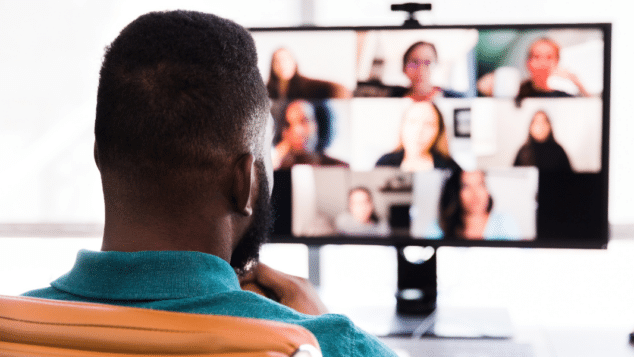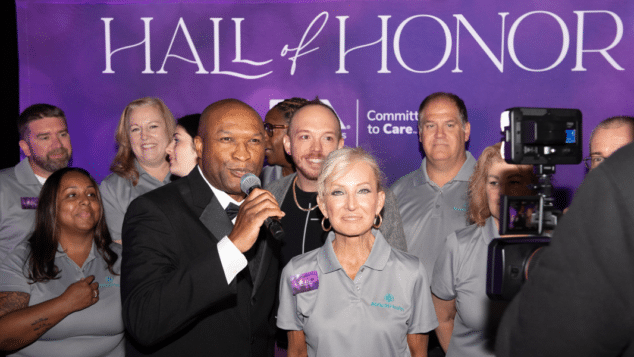Now’s the Time for Virtual Events and Livestreaming

Mounting concerns over the spread of the coronavirus has led to the cancellation of thousands of events across the country and around the globe. Currently, the U.S. Centers for Disease Control (CDC) recommends canceling any gatherings of 50 people or more taking place in the next eight weeks.
In these unprecedented times, associations must be positioned to meet their members where they are— with convenient and compelling livestreamed and virtual events to mitigate the loss of in-person programs. The main challenge is where to start. That’s why seasoned experts are here to weigh in and provide you and your organization the direction to bring your virtual events to reality.
Benefits and Challenges of Livestreaming
When most association professionals think of the leading resource for event knowledge and best practices, we think of the Professional Convention Management Association (PCMA). In addition to in-person events, PCMA is also a pioneer in virtual event strategy and execution and offers a Digital Event Strategist (DES) certification to help individuals effectively plan, produce and measure the results of livestream and digital events. Leslie Bailey, Education Manager, and Caitlin O’Malley, Education Associate at PCMA, offer their thoughts on the upside and potential hurdles of livestreaming.
FORUM: Why should associations consider livestreaming, and what would you say to organizations concerned that virtual events will erode in-person event attendance?
PCMA: Livestreaming opens up opportunities for not only associations, but their current and future members. Livestreaming can be a convenient solution to concerns regarding sustainability, and PCMA has recently held a number of sessions on this topic. Organizations and attendees alike are looking to decrease their carbon footprints and be prepared in the event of environmental or illness-related disasters—such as the ongoing coronavirus outbreak. Livestreaming also extends the event reach to audiences that may not be able to attend a particular event due to cost or geographic distance.
PCMA started livestreaming in 2010, and we currently stream two-and-a-half days of our annual meeting. In our digital event surveys and chat, we get so many people who comment on how great the livestream of the meeting is and how they can’t wait to attend the event in person the following year. We tell people not to be concerned that livestreaming will take away from meeting attendance. Livestreams extend curiosity, interest and excitement about events in general.
FORUM: What challenges are you seeing from individuals and associations that have come through the DES program?
PCMA: Budget is a main topic and potential stumbling block. People may mistakenly start out with an estimate that’s too low, and then their estimates are out of sync with the reality of the RFPs they receive.
Building a digital events team is another challenge, but one that can be overcome. One individual who went through the DES program in 2018 has now executed four live events at her organization. When organizations begin considering implementing a virtual event, they don’t have to have a full project team or livestream an entire meeting. At PCMA, we don’t record every session. Organizations can start with one day and see how it goes. They can also test live events via Facebook Live or YouTube. There are plenty of low cost, low risk ways to trial livestreaming.
Virtual Event Strategy and Execution
Arianna Rehak is the CEO of Matchbox Virtual Media, an organization that produces virtual events that engage organizations with their communities and subject matter experts through live co-creative experiences. They also help associations define their digital strategy and embrace new methods of leveraging their influence. Arianna and her team are disrupting the event landscape by producing deeply connective events while reducing barriers to entry.
FORUM: Matchbox Virtual Media is a particularly unique organization in the virtual event space. How would you describe your virtual event strategy?
Ariana Rehak: We’ve aimed to create a method for hosting virtual events that is about soliciting wisdom from the community. This was born out of the realization that collective knowledge is more powerful than what any individual can share. Virtual events have traditionally been used as a broadcast medium. You have the knowledge givers and the knowledge receivers, and clear divide between the two.
However, our medium works really well for topics that are conversation-based, where attendees have relevant insight to share. That sharing becomes a big part of the value, because attendees can learn from each other. This also leads to networking, because we find that attendees will reach out to each other to follow up on learnings that were shared.
FORUM: What types of virtual events do you offer and how do you make sure they’re engaging and interactive?
AR: People come to us for two major reasons. Number one is that they want to host a conversation that matters, and they are choosing our approach to do so. For example, we partnered with several CPA societies to host a conversation around the future of the profession. The CPA community is undergoing a fairly significant crisis right now, because what it means to be a CPA is fundamentally shifting due to automation. In this case, they wanted to bring their members into the thought process and work together to co-create the future.
The other reason is because organizations are strategically using a virtual event to achieve a certain purpose. That purpose might be creating a new learning product, breathing life into an online community, using a virtual event as a preview of an in-person event to increase attendance, or crowdsourcing solutions to a specific problem.
I can’t emphasize enough how important it is to design sessions around conversations that matter. We see this as critical to the outcome of the events and a big part of our methodology is a facilitated process to help associations narrow in on their most poignant conversations.
Reflection
The ever-changing landscape that is our current reality has led associations to take a holistic look at the programs, products and services we offer to our members. While none of us would have chosen this reality, we can choose to find positivity amongst the chaos. We can pair down to the essentials and focus our resources on improving our core offerings. We can use this time to develop greater competencies in virtual events and livestreaming.
George Washington Carver said, “When you can do a common thing in an uncommon way; you will command the attention of the world.” The traditional event paradigm is shifting. Your organization’s members will remember how you managed through the chaos. Reinvent your idea of community and do the uncommon thing.
Tags
Related Articles
Double Your Footprint: Enhancing Conferences with a Hybrid Event Workflow
By combining on-site engagement with a digital experience, hybrid events can attract diverse audiences, boost...
The Emergency Nurses Association Utilizes Design Thinking to Reimagine its Awards Ceremony
In a prime example of intrapreneurship, the ENA utilized design thinking to innovate within the...
Top Ten Skills Needed to be a Meeting Planner of the Future
Now, more than ever, meeting planners need to be flexible and savvy. Read on for...




